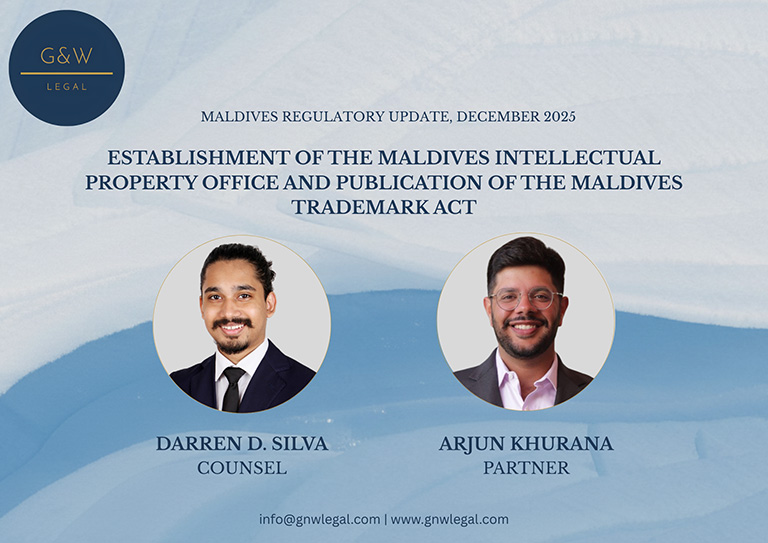
The acceptance of foreign funding by non-profits (i.e., NGOs) in India is strictly regulated through the Foreign Contribution (Regulation) Act, 2010 (“FCRA”). The FCRA is the primary tool used by the Indian Government for the regulation of foreign hospitality through the Ministry of Home Affairs (“MHA”), the authority that regulates and oversees the compliances prescribed under the FCRA.
The definitions of foreign contributions and foreign hospitality considered under the FCRA are very wide in their ambit and include donations, delivery, or transfer of any article beyond specified monetary values, currency and security including foreign securities.
Madras High Court Rules that Procedural Irregularities Unaccompanied by Misuse of Funds Cannot be Basis to Reject Renewal of Registration Applications
In a recent case,1 the Madras High Court (“Court”) held that an NGO’s inadvertent failure to comply with a procedural amendment for a short period should not result in a refusal to renew a registration certificate under the FCRA. Accordingly, such renewal cannot be rejected if such lapse did not result in any misuse or personal gain.
In this case, the petitioner was a trust that established two sister trusts for public welfare. The petitioner received foreign funds, and thus, was registered under the FCRA in 1983, with the latest renewal taking place in 2016 for a period of five years. In 2021, the petitioner filed an application for renewal of registration and responded to all queries presented by the government’s FCRA Wing. The final query pertained to the petitioner’s two sister NGOs and the details of movement of funds among the NGOs. The petitioner provided the details, however, in December 2021, the FCRA Wing sent an email communication informing the petitioner that its renewal application had been refused- since the FCRA allowed the government to refuse renewal to those found to have contravened the provisions of the FCRA. This was put to challenge in a writ petition before the Court.
The Court considered the facts and noted that the respondent deposed before the Court that it rejected the application apparently due to the violation of the amendment to Section 7 of the FCRA. This amended provision required the transfer of foreign contributions between different NGOs to be done only after getting prior government permission, while no such requirement existed before such amendment- so long as the transferee was also registered under the FCRA. The Court delved into the matter, eventually concluding that the petitioner had not misused foreign funds or obtained any personal enrichment as a result of the error.
The amendment abovementioned became applicable only for a period of five months prior to the filing of renewal application. As such, the FCRA Wing of the government could have put the party on notice and inform it of the violation and a response could have been sought. The Court held that even though ignorance of law is no excuse, mere procedural irregularities alone, unaccompanied by substantive misconduct, cannot justify denial of renewal in the Court’s reasoning.
Further, the Court held that the contention that the government is not required to communicate reasons for refusal of renewal was entirely unsustainable.
To conclude, the Court held that just because some institutions run with foreign aid, it is not necessary to look at them with suspicion unless there are materials to show that aid is being misused and/or is being used against public interest. Thus, the Court set aside the communication of rejection by the FCRA Wing of the government and issued a direction to act on the renewal application within a period of four weeks.
The Ministry of Home Affairs Amends Foreign Contribution Regulation Rules, 2011
The Foreign Contribution Regulation Rules, 2011 (“FCRR”) prescribe specific compliance requirements and conditions under the FCRA. The FCRR was recently amended by a notification issued in May 2025, 2 which now adds to the documents and information required to be provided as explained below:
1. New registration or Prior Permission under FCRA: The amendments now require the inclusion of additional documents along with an application for a new registration under FCRA in the prescribed Form FC-3A, such as financial statements and audit reports of the last three years and a chartered accountant’s certificate, year-wise activity reports of last three years, an affidavit regarding utilisation of funds in a specific format where previously registered under the FCRA. Further, if the amount spent on aims and objects of the organisation in the last three years is less than INR 15 lakhs (which is a requirement to obtain a new registration), then the organisation is allowed to include capital investments in assets like land, building, vehicles, etc. in its computation of its spending in the last three years provided the Chief Functionary furnishes an affidavit under Rule 9(1)(f)(ii) in the prescribed format, which includes an undertaking that assets shall be vested henceforth with the person till the validity of the certificate and they shall be utilised only for the activities covered under the Act.
2. Prior Permission under FCRA: In limited circumstances, the FCRA allow organisations to receive foreign contributions without an FCRA registration. An application for prior permission is made as per Form FC-3B which now stands amended and requires the applicant to enclose more information than previously required – calling for a commitment letter from the donor, a project report including a detailed breakup of proposed expenses to be incurred from the foreign contribution received (along with a declaration that administrative expenses shall not exceed 20% of the foreign contribution), a letter from the Chief Functionary in the prescribed format, and an undertaking to adhere to the Good Practice Guidelines of the Financial Action Task Force in a prescribed format.
3. Renewal of registration under FCRA: Registrations under the FCRA can be renewed by filing the prescribed Form FC-3C. The amendments require specific affidavits to be filed for each person forming part of the office bearers, directors, or key functionaries of the association as part of the renewal application. Further, if the registration under FCRA has expired, an affidavit showing the receipt and utilisation of foreign contribution after expiry of registration certificate is required to be submitted in a specified format available on the FCRA portal.
4. Annual Accounts of Foreign Contribution: Every association is required to file Form FC-4 which provides an account of foreign contribution received by the association for the financial year ending on 31 March of every year. The form requires detailed description of fresh assets, movable assets, and immovable assets created or acquired out of foreign contribution to be furnished while submitting this form.
5. Intimations to FCRA authorities under the law: Additionally, Form FC-6A to 6E provide for various intimations to be provided by the association if any changes are made as prescribed under the Rules. The amendments now require a copy of approval from the relevant authority for amendment and a copy of resolution of the governing body of the association effecting the change to be filed along with the prescribed forms.
Ministry of Home Affairs Permits Associations to Pay Compounding and Fees from the FCRA Bank Account
With a view to address procedural difficulties being faced by some associations in payments of compounding and fees from the FCRA bank account, the MHA has issued a public notice providing clarifications. 3 As per the FCRR, no association whose certificate of registration had ceased to exist could either receive or utilise foreign contributions until a renewal was granted.
This meant that associations whose registration had ceased were unable to make payments for such procedural expenses as compounding from their FCRA bank account.
Recognising this difficulty, the MHA has now allowed associations whose FCRA registrations have expired to pay the compounding penalty and fees from the FCRA bank account held with State Bank of India, New Delhi Main Branch, through FCRA online portal by introducing a new feature called “SBI Branch Payment”.
It is however to be noted that any other utilisation of funds from an FCRA bank account during this period would amount to a violation of FCRA.
Ministry of Home Affairs Extends Validity of FCRA Registrations for which Renewal Applications were Pending Consideration
The MHA has been issuing regular notifications extending the validity of FCRA registrations of those entities who had filed the renewal applications within time, and were pending consideration with the Government till date.
On 24 June 2025, the MHA has issued its latest notification on the subject- extending the validity of FCRA registration certificates till 30 September 2025 or till the date the renewal applications get disposed by the authorities, whichever is earlier.
The following categories of entities are covered under this notification:
- Those entities whose validity of registration certificates were extended till 30 June 2025 in accordance with a previous notice to this effect.
- Those entities whose validity of registration was expiring between 1 June 2025 and 30 September 2025 and had applied apply for renewal of registration before the expiry of their registration as required under FCRA.
- The notification also makes clear that if a renewal application is refused by the authority, the validity of the registration certificate shall be deemed to have expired on the date of refusal of the renewal application, as a result of which the entity will not be eligible to receive or utilise foreign contributions as of the date of such order.
- Ellen Sharma Memorial Trust & Or v. The Director, FCRA Wing & Or, CMA No. 746 of 2022 & W.P. No. 4887 of 2022, High Court of Madras, 27 June 2025.
- Notification dated 26 May 2025, FCRA Online Services managed by Ministry of Home Affairs at
https://fcraonline.nic.in/home/PDF_Doc/fc_gaz_27052025.pdf, Retrieved 1 July 2025. - Notification dated 14 May 2025, FCRA Online Services managed by Ministry of Home Affairs at
https://fcraonline.nic.in/home/PDF_Doc/fc_notice_14052025.pdf, Retrieved 1 July 2025. - Notification dated 14 May 2025, FCRA Online Services managed by Ministry of Home Affairs at
https://fcraonline.nic.in/home/PDF_Doc/fc_notice_24062025.pdf, Retrieved 1 July 2025.
Disclaimer: This update is for general information purposes only. It does not purport to provide comprehensive legal or other advice. The publisher and the contributors accept no responsibility for losses that may arise from reliance upon information contained in these publications.















